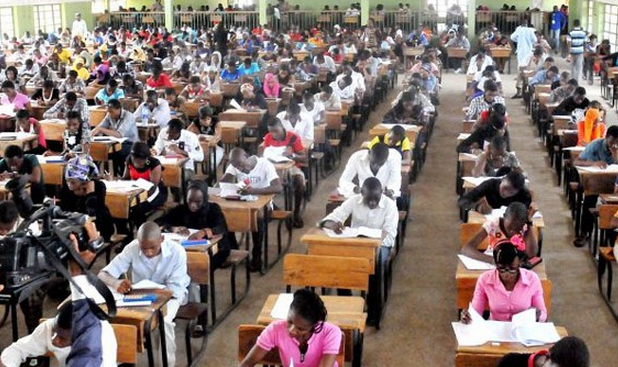Last Wednesday, the authorities of The Polytechnic, Ibadan, burnt thousands of telephones seized from its students to ashes. It said it did this in its bid to curb examination malpractices. While some analysts have estimated that the telephones’ worth could be above N15 million, it’s really difficult to put a cost to the phones.
To the school authorities, taking that step is a sure way of reiterating its zero tolerance for exam malpractice as well as its resolve to enforce discipline in the 49-year-old polytechnic.
As a way of probably proving that the institution was excited at its ability to take such a bold step, it invited the media to witness the burning of the telephones with its Deputy Rector, Bayo Oyeleke, boasting to journalists at the Ibadan campus, that the authorities had resolved to “ensure that the crop of students and products being produced by the school are students with exemplary character and those who really work and worth the certificate of the institution.”
According to him, the phones were recovered from the students during examination in the school. He said the school decided to burn them to restate its commitment to fighting examination malpractices to the barest level.
Truly, ours is a country that has institutionalized cheating. We cheat to be elected in positions of power. Elections are rigged. Electoral results are changed and forged in broad daylight. People cheat to get to positions of authority. In fact, it appears cheating is officially backed in Nigeria.
It’s unfortunate that of all the troubles bedeviling Africa, we could still have issues with the integrity of our exams. Nigeria’s case is even worse. Exam malpractice in Nigeria is said to predate independence. It all began in 1914 with the leakage of the senior Cambridge local examination. What worsens the case in Nigeria is the fact that while the practice is reducing in some parts of the continent, it is growing here. In Malawi, for example, the rate of exam malpractice has dropped . Between 2003 and 2014, the rate of exam malpractice fell from 3.97 % to 0.1 %.
Advertisement
But, this didn’t happen by accident. There was a deliberate move to curb the malaise. There, exam cheats are jailed. But in Nigeria, they are spared. While the 1999 Examination Malpractice Act, provides a minimum of three years jail term for any teenager guilty of engaging in exam malpractice or a fine of N100,000 and four-year imprisonment for others without the option of fine, we rarely hear of anybody being convicted for exam malpractice in this country.
But having said this, I believe there is still a problem with the kind of exams that schools, especially higher institutions, set. Why should our higher institutions be having problems with exam malpractice? If these schools set the right questions, it would be almost impossible to cheat during exams. It is difficult to cheat when exam questions are tasking the students’ creativity, assimilation and analytical prowess.
In societies where students are trained to be analytical, creative and innovative, items such as telephones are irrelevant to examinations. Of what advantage will a telephone be for instance to a student of Economics asked to suggest solution to an identified area of challenge in the economy? When students are given problems or scenarios that they are expected to solve, they would need to put on their thinking caps.
Advertisement
In such instances, there is nothing like right or wrong answers. Scores are determined by the extent to which they are able to structure their arguments and present their solutions. This, to me, is what education should be about not mere regurgitation of crammed points.
The question is what stops our lecturers from setting this type of questions? The answer is simple. Such questions require a greater level of attention to grade. The lecturer will have to assess each individual on a personal basis. This, is almost impossible in many higher institutions in Nigeria because many of them are overwhelmingly oversubscribed. Indeed, it is almost impossible for any lecturer to do this, particularly in public universities. As a way out, the lecturers set simple objective questions or straightforward questions with simple marking schemes that can be easily used by anybody to grade the scripts. That is the problem.
So, rather than glamourise the burning of millions worth of telephones in a bid to curb exam malpractice, our higher institutions should begin to canvass a conducive environment for teaching, acceptable teacher-to student ratio, greater dedication of the teaching faculty and less emphasis on paper certificates.
Higher institutions should basically encourage people to think out of the box. I once had a conversation with someone studying in an American university. She said, as a student, she was asked to define boldness in an exam. Here, one is likely to be tempted to reel out definitions upon definitions. But, according to her, she simply wrote: “ Boldness is returning this paper blank.’’ Guess what? She got an A in the course.
What would be the relevance of a telephone in an exam like this? What difference would a dozen of telephones have made in a situation like this? Nothing I guess. This is the type of exam question I am talking about-questions that task your thinking faculties; questions that force you to think out of the box.
There are numerous schools in the world today that have embraced open book exams. They allow students to bring text books to exam halls. A student is free to bring his/her notes and other resources to the exam hall. The lecturers are not afraid of doing this. They know that exams shouldn’t be a way of testing how much information you can cram but a test of how a student could apply information.
Advertisement
Of course smart students know that open book exam time is not the period to learn something new. They know that the fewer materials you bring in, the better for them. What’s more? They know that opening textbooks during exams will be time wasting, so they would rather they learnt and studied well before exams. On the lecturers’ part, they know that the students have their notes and texts in front of them, so they won’t ask them questions that they can easily copy and paste.
Rather, they would be testing the students based on their level of application of knowledge. They will judge them based on how they can evaluate and synthesise information. They will be more interested in the big picture. Little wonder, such societies breed innovators and world changers.
Unfortunately, the entire country has suffered from our simplistic approach to solving problems. Throw money at our problems. We are always thinking of the easy way out. For example, when government doesn’t have money to pay workers, they borrow instead of thinking of how to generate revenue and engage the workers more productively. . When there is insecurity, government votes more money for arms and ammunition .
The inability to be analytical makes propaganda an easy weapon of dominance of the people. It is very easy to swallow any rubbish hook, line and sinker. That’s the saddest part of it. So we continue to go in circles.
Advertisement
Education shouldn’t just be about paper qualification. We have to stop seeing education as just a meal ticket –a situation that has made acquiring certificate either by hook or crook a fad. People should start seeing education as a means of making meaningful contributions to the society.
Here is a country that has institutionalized cheating. We cheat to be elected in positions of power. Elections are rigged. Results are exchanged and forged in broad daylight. People cheat to get to positions of authority. In fact, Cheating has been tuned to a norm. our governments plagiarise other people’s slogans,
Advertisement
Views expressed by contributors are strictly personal and not of TheCable.
Add a comment







